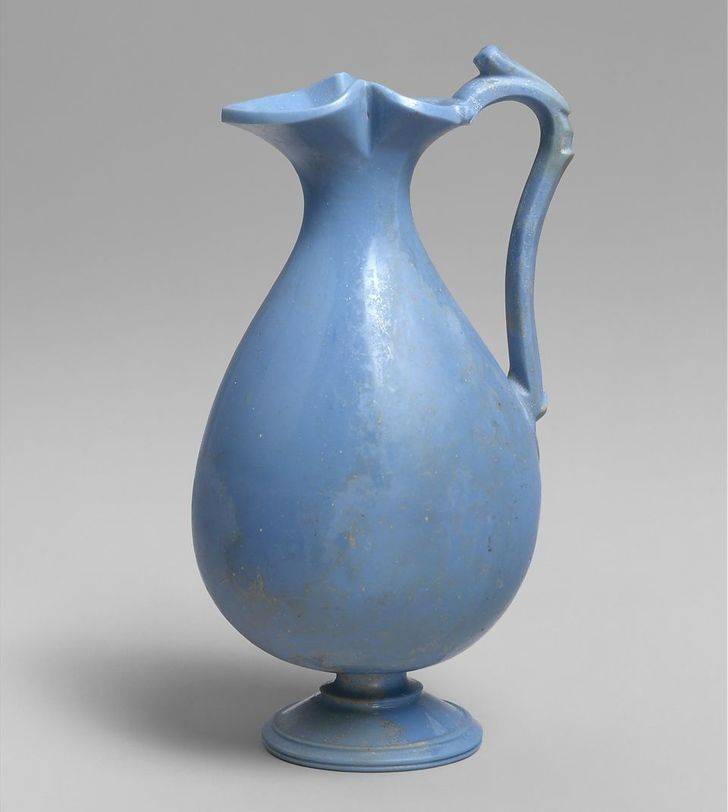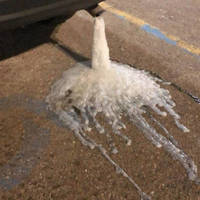This is a blue glass jar from Ancient Rome, first century B.C.E. to the first century C.E. It was made with techniques that are now understood perfectly.

2.

Tabitha 4 year s ago
Deliverance, Hercules is adaption of Ηρακλής. Heracles is the transliteration, using latin letters, of Ερακλες, a different way to pronounce the name. Note that in Greek H is pronounced i like in the word this, is, it etc and E like in word ten, then, men. The latin H is representing a lost non used, nowadays, symbol that was helping in the pronounciation.
5.

Prue 4 year s ago
Pate,
Well, most were found in the ground. The original owners died long ago. Most of this is in museums and meant to educate us how people in the past lived. No one walks through a museum gloating how it was taken. Not even the original finders did that.
There is a problem with some items about giving it back if the country of origin asks for it in some cases.
But that's hardly the case in all of them.
Well, most were found in the ground. The original owners died long ago. Most of this is in museums and meant to educate us how people in the past lived. No one walks through a museum gloating how it was taken. Not even the original finders did that.
There is a problem with some items about giving it back if the country of origin asks for it in some cases.
But that's hardly the case in all of them.






Well, most were found in the ground. The original owners died long ago. Most of this is in museums and meant to educate us how people in the past lived. No one walks through a museum gloating how it was taken. Not even the original finders did that.
There is a problem with some items about giving it back if the country of origin asks for it in some cases.
But that's hardly the case in all of them.
You're right of course, although there are quite a lot of items in private collections around the world. I still think the US government and most likely at least the Vatican have secret caches of oddities and rare treasures stashed away somewhere safe.
Plus in many countries it is legal to obtain any ancient artifact if you can prove that it was found up to a date and you legally possess it, via purchase, heritage etc.